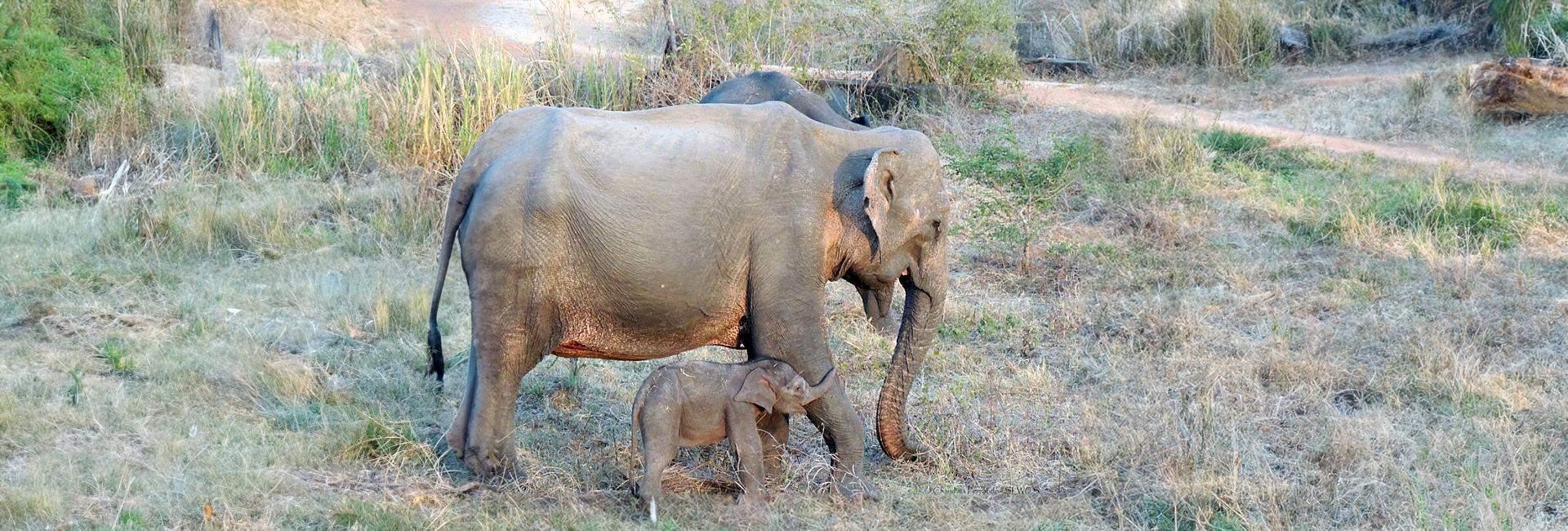It is with heavy hearts that we bring you the news of a recent loss at The Great Elephant Project.
Some of you may remember that last year, The Great Elephant Project welcomed a baby calf named Lorna into their lives. Lorna was born to a 50-year-old matriarch which, in itself, was quite unusual: female elephants generally start to breed when they are around 12-15 years old, so for a birth to take place with an older mother does, unfortunately, carry many risks. It is, in part, this unusual birth which has lead to the recent loss of little Lorna.
An inability to lactate made it tough for Lorna’s mother to provide enough milk for the little one, but curiously Lorna did not attempt to feed from other females in her herd. Sometimes juveniles will suckle from other members of their group, and there seems to be no explanation as to why Lorna did not want to feed from anybody else. Additionally, Lorna’s start to life was marred by the impact of the dry season: scientists state that elephants need to consume 150-200 litres of water per day, which of course can be difficult during a drought, and as such this would have only contributed to Lorna’s mother’s inability to feed her young, or indeed Lorna’s ability to feed herself as the months went by.

Amazingly, Lorna had managed to survive for about a year before seemingly succumbing to malnourishment (this is something that is no fault of the team at The Great Elephant Project, and rather a tragic fact of life for some animals). A member of the team had gone out to observe a large herd of elephants from within the National Park when they spotted Lorna’s mum, keeping an eye out for the little one to follow, but unfortunately, it was not to be. It is this final lack of Lorna’s presence which culminates weeks of failed observations, and it is time for the team and the herd to accept what appears to be a very upsetting time in their lives.
Lorna’s mother has been observed caring for other calves of the group, including Lorna’s own cousin, Sam. While she is unable to feed them, she is keen to stay close to them and doesn’t allow them to stray too far. She appears to miss her little girl but still continues on with her herd, and it is clear that despite her inability to raise one last little life, she had been a wonderful mother to all calves that preceded Lorna.
To close out this post, we must state that the work of The Great Elephant Project is spectacular and they do so much to prevent the human-elephant conflict in Sri Lanka (see our recent blog about that here). As previously stated, Lorna’s demise is just a cruel part of life in the natural world, and little could be done to have prevented what had happened, but without the observations and hard work of the project staff and our volunteers, we could have lost many more like her, long ago. It is vital for the elephant species as a whole that projects still receive funding, that observations take place, and that elements of conflict are managed. Losing Lorna only goes to highlight that point, and we extend our condolences to those that had enjoyed sharing in her short life in the wild. Rest in peace, Lorna.















